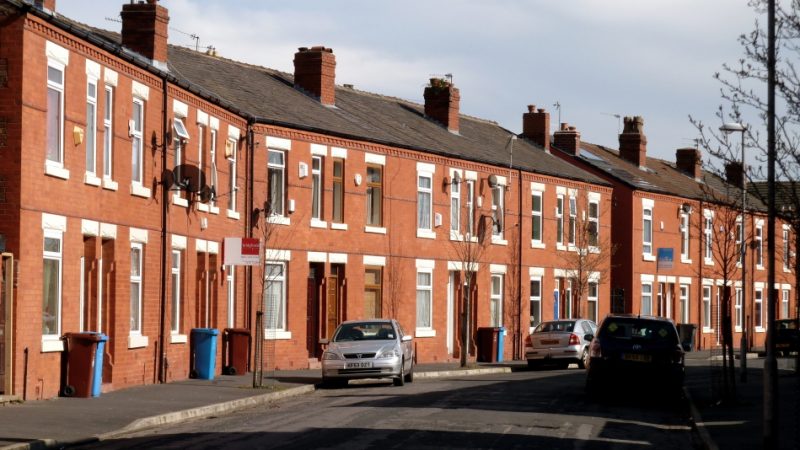Nearly a million properties in the private rented sector are judged to be 'non-decent'

The average renter hands over a third of their income to a landlord every month. But what they get for their money often leaves a lot to be desired. Privately rented homes can often be unpleasant and even unsafe places to live or raise a family.
Whether it’s mould, damp, overcrowding or electrical hazards, poor-quality or ‘non-decent’ housing can ruin lives. It makes people unwell more often and for longer, affects people’s wellbeing, and reduces life chances for children as they grow up. It increases the burden on our public services. Poor housing costs the NHS around £1.4 billion, according to the King’s Fund and National Housing Federation.
And nearly a million properties in the private rented sector are judged to be ‘non-decent’, with over 60 per cent of those posing a significant threat to health and wellbeing, according to new data from the English Housing Survey. Around 14 per cent of all homes rented privately fail to meet the minimum expectation for housing in this country, yet they are still being let out and are making money for unscrupulous landlords.
This is more of a problem in the north than in London and the south east – unlike the housing affordability crisis that receives the most attention. 40 per cent of private rented properties that pose a threat to health and wellbeing are in the North, with just 17 per cent in London and the south east. Indeed, there are more unsafe privately rented homes in Yorkshire and Humber alone than in London and the South East combined, even though its sector is just quarter of the size.
Tackling low standards in the private rented sector should be a key part of any regional inequalities agenda, like the Conservatives’ failing ‘levelling up’ strategy.
Government policy can be incredibly effective in raising the quality of housing. When Labour won in 1997, the social rented sector was a by-word for low quality, non-decent homes. At the time, around half of properties were warm and weatherproof, or had modern facilities. So in 2001, Labour launched the Decent Homes Standard – and backed it up with investment. Between 2001 and 2010, the proportion of non-decent social homes fell from 39 per cent to 25 per cent. Even under austerity, the proportion of non-decent homes has fallen to around 10 per cent today. Setting standards works.
It will be trickier to have such a rapid impact on the private rented sector. There are a larger number of small landlords to encourage or compel to meet basic standards – and fewer currently available tools to ensure they do. A House of Lords Select Committee found “a complete lack of incentives for … private landlords to make improvements to their properties”. And private landlords have already resisted the introduction of higher energy efficiency requirements, with the government indicating a delay in response as a result.
But this should not deter a future, progressive government from being as ambitious for standards in the private rented sector as the last Labour government was in the social sector. It will require a broad suite of policies, many of which are different to those needed to tackle the housing affordability crisis. Building more homes will, at best, have an indirect impact on the nearly one million non-decent properties that families will still be living in – even if we hit housebuilding targets.
A future progressive government should extend the Decent Homes Standard to the private rented sector. All private landlords should be required to provide access to safe and comfortable living environments – and higher energy efficiency standards should be only a part of that. This will give landlords certainty around a standard to aim for – and a timescale to do so.
This is not controversial: the current Conservative government set out its intention to do this in the Renters Reform Bill. However, the Bill does not say how a Decent Homes Standard for the private rented sector will operate or when landlords must meet it.
If private landlords are unwilling or unable to meet a new Decent Homes Standard, councils and housing associations should be supported to purchase their properties. The Fabian Society’s Commission on Poverty and Regional Inequality recommended £15bn over 10 years to buy and refurbish half a million privately rented homes. This scheme would focus on non-decent homes, either because they pose a threat to health and safety of the occupants or because they are energy inefficient. Most likely it will be both.
No one should be renting a home that puts their health and wellbeing under threat. By raising standards in the private rented sector, and enforcing them, a future progressive government can ensure that no one does.
Ben Cooper (@BenCooper1995) is a senior researcher at the Fabian Society
To reach hundreds of thousands of new readers and to make the biggest impact we can in the next general election, we need to grow our donor base substantially.
That's why in 2024, we are seeking to generate 150 additional regular donors to support Left Foot Forward's work.
We still need another 124 people to donate to hit the target. You can help. Donate today.



